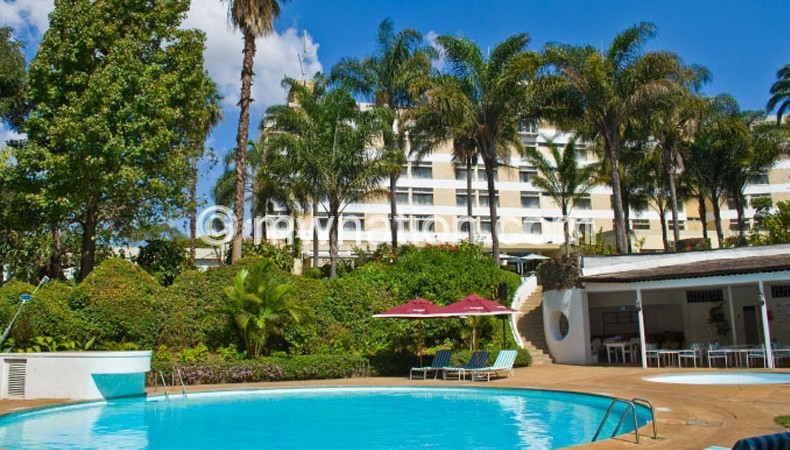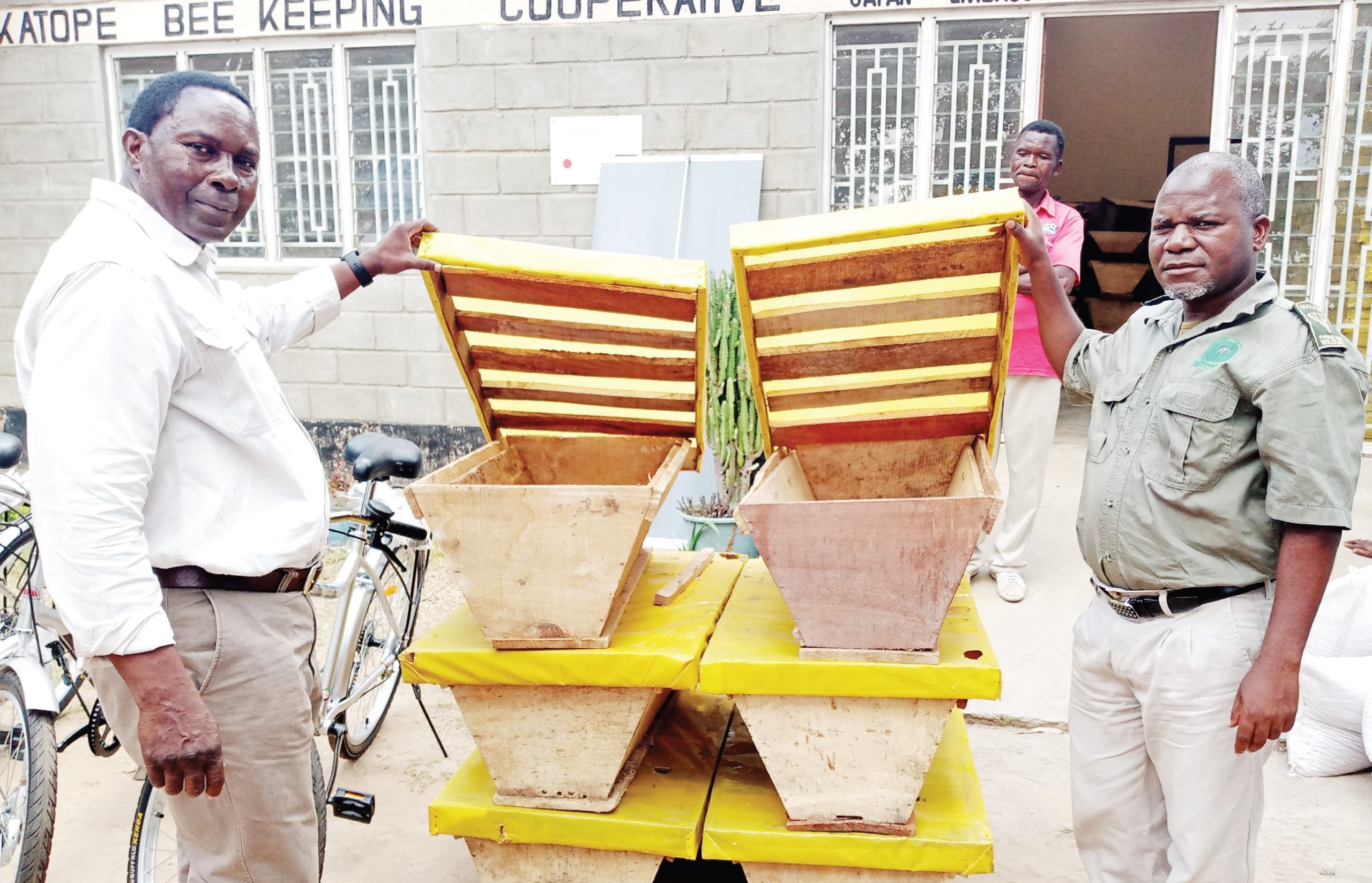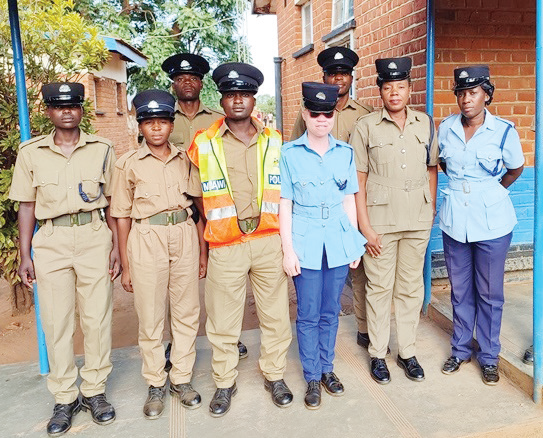Covid-19 knocks Malawi’s tourism on to sickbed
As the global tourism suffers the slings and arrows of coronavirus, the local tourism sector is in a hospital ward for patients in need of special care. And as the end of the pandemic seems uncertain, there is darkness at the end of the tunnel for Malawi tourism, writes our contributor CHARLES MPAKA:
At one elegant hospitality facility in Mulanje, signs of a virus loosened upon the tourism industry in Malawi start showing at the gate.

Here, a guard aims her pistol-like device too close to every visitor’s forehead—as if to blow their brains away. Then she shows you the reading of this infrared thermometer.
Only after she has performed this ritual does she open the gate. No one is allowed to enter the premises without their temperature read.
“If the temperature is too high, we send you back as you might be a Covid-19 risk,” says the guard through the mask covering her mouth and nose.
Inside the premises, buckets of water are located at every strategic point for people to have no excuse not to wash their hands.
Almost every visitor and member of staff at the premises has a mask on their face.
In the conference rooms, there is a supply of hand sanitisers.
In every respect, there is evidence of good corporate citizenship of a tourist facility playing its part in fighting a rampaging global pandemic.
Ironically, behind all this sense of responsibility to prevent contraction and transmission of Covid-19, the facility cannot save itself from the sharp teeth of this virus nibbling at its business. In comparison with how usually bustling the place is, life looks evidently low key now. The guard tells why.
“It’s because of coronavirus. These days, not many guests come. It is very bad. We pray we don’t get retrenched,” says the guard who has worked at the place for five years.
The guard’s fears are not isolated or unfounded. According to Malawi Tourism Council, over 35 000 local tourism sector jobs are at risk due to Covid-19.
Malawi’s tourism is on a sickbed, desperately in need of a ventilator. Coronavirus is chopping its respiratory system with the tenacity of a vicious insect.
To begin to draw the picture of how dire the situation is today, this following fact serves to be a good starting point: the local tourism sector felt the viciousness of Covid-19 way before Malawi started the fight against it.
In May, Yusuf Olela, chief executive officer for Sunbird Hotels & Resorts, reported that business had gone bad for the hospitality chain early before Malawi started implementing Covid-19 preventive measures.
“Due to lockdown in source markets such as United Kingdom, United States and in South Africa and Kenya, the numbers just went down before Malawi Government started putting measures to restrict movement,” he said.
The same month, which was barely two months after Malawi was declared a State of Disaster for coronavirus, Protea Ryalls Hotel’s general manager, David Church, said they had already lost 90 percent of their business due Covid-19.
Now Protea Ryalls Hotel and Sunbird Hotels & Resorts are gigantic, age-old players inlocal tourism. That these elephants in the trade could feel the venomous bite of the virus that early should suggest how squeezed the smaller players are today.
And as the virus hangs on with the tenacity of an evil weed, the worst is yet to come for Malawi’s tourism.
The situation is no less desperate in the conservation sector. African Parks is a not-for-profit organisation which specialises in rehabilitation of protected areas in partnership with the government. It manages Nkhotakota Game Reserve, Majete Game Reserve and Liwonde National Park.
Samuel Kamoto, park manager for Nkhotakota Game Reserve, says the organisation has suffered an average 75 percent reduction in income due to Covid-19.
“Our foreign guests have all but disappeared. This portion of our tourism are the big spenders and contribute more than three quarters of our annual income,” he says in a questionnaire.
Last week, the Malawi Tourism Council (MTC) dispatched a letter to Minister of Tourism, Wildlife and Culture, Michael Usi, seeking government’s help to save the industry.
In the letter, MTC said the sector is being torn apart by high income losses due to reduction in business on the one hand and the obligations to still meet fixed costs on the other.
“Over 90 percent of the tourism related operators have seen an income decrease reaching 85 up to 100 percent since February 2020, while fixed costs such as wages, taxes, licenses and fixed utilities kept the same or even increased,” reads the letter, dated 24 July 2020 and signed by MTC chairperson Tim van der Linden, who made it available to this reporter.
The MTC chairperson observes that the rising number of Covid-19 cases in Malawi, South Africa, Kenya and United States combined with the likelihood of a second wave of the pandemic in the source markets in Europe spells even more doom.
“This cocktail means that we expect the crisis in our tourism sector to continue until a vaccine against Covid-19 is on the market. Therefore it is expected that tourism in Malawi will be badly affected for the whole year of 2020 and most likely a big part of 2021,” he says.
He further warns that without any support from the government, it will take between 5 and 10 years to get tourism in Malawi back on the level it was before the Covid-19 crisis.
The impact could be deeper and extensive.
Apart from losses of tens of thousands of tourism jobs, Malawi risks losing as much as $18 million (about K13 billion) in tourism money which MTC survey found goes into the economy every month.
And as the tourism industry sways on the edge between survival and collapse, those in the supply chain are certainly counting the cost—food and toiletry suppliers and a range of other material suppliers are losing market and income. It is a web of a crisis.
In the case of African Parks which has been operating in Malawi for 18 years now, the closing of borders has stalled some of its conservation work in Malawi.
“A lot of our specialist items come from South Africa. We are currently upgrading the Majete boundary fence, constructing a fence in both Nkhotakota and Liwonde and we have had big delays in the delivery of fencing material. This is just but one supplier,” Kamoto says.
African Parks may have a lifeline as it has “very dedicated funders who have not abandoned us”. But it equally fears for the future and therefore pleads for the support of the local market.
“Tourism development is a huge loss and will mean that it will now take longer to get these reserves sustainable. The big issue is how long it will take to get back to normal,” says Kamoto.
Principal Secretary in the Ministry of Tourism, Wildlife and Culture, Isaac Katopola, has the same fear: How long will Covid-19 hang on?
A vastly experienced government official in tourism issues, Katopola admitted that the tourism sector in Malawi is in unimaginably distressed situation. “I admit that the situation is very bad,” he said.
He acknowledged receipt of MTC letter and assured that government will listen to every suggestion put before it to rescue to the situation. But he underlined that his ministry also does not have all the solutions.
“Some of the measures being recommended need that we also work with other government departments. For example, issues of review of labour laws to facilitate retention of staff and waiver on taxes and utility bills are matters that cannot be handled by us. It is a process.
“What we need to bear in mind is that we have before us a very complex situation. It is not only us here who are affected. Everyone anywhere is in our situation. I do not think solutions can come overnight,” he said.
About the future, Katopola could not be idealistic about it either.
“We do not know when this pandemic will pass. We can count on a vaccine but when will that be? So let’s face it: things may get harder. What I can tell the players in the sector is that we are in this together. As government we will do the things we need to do. But as I said, we do not have all the solutions” he said.
However, even as the future looks uncertain, organisations such as African Parks still have hope.
“We will keep doing what we do. There is no indication in the immediate future that our loyal donor support group will withdraw any funding. African Parks continues to expand its horizons with one new park being added recently. We still hope to be involved in 20 protected areas in Africa by the end of the year,” said Kamoto.
But while African Parks can hold on a little longer, many in the sector who do not have similar support cannot keep standing into uncertain future. It could be that by the time the ventilators come, the patient would already be dead.





